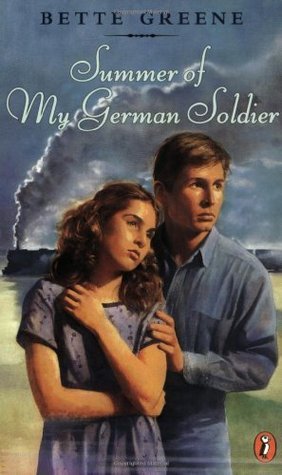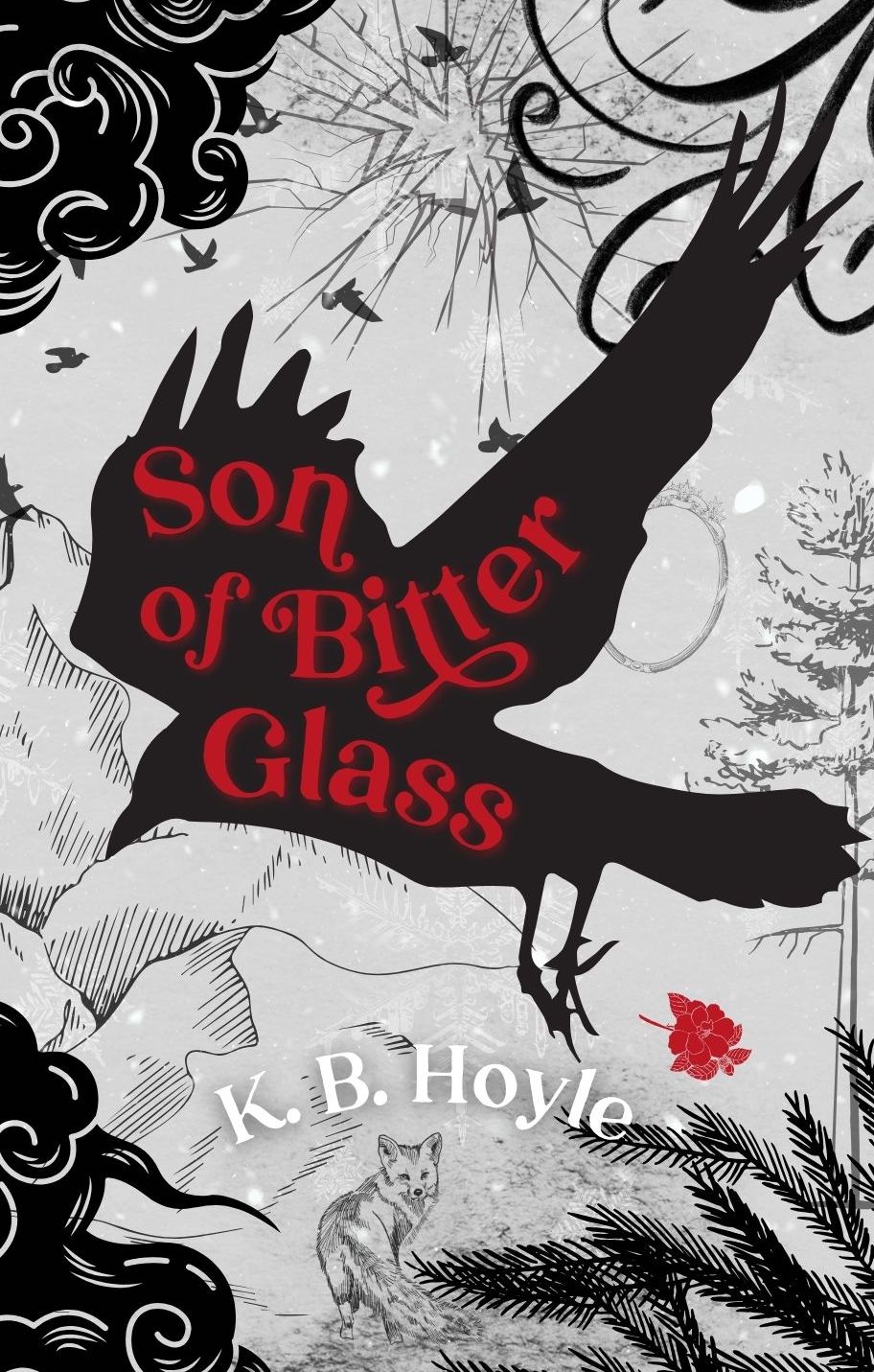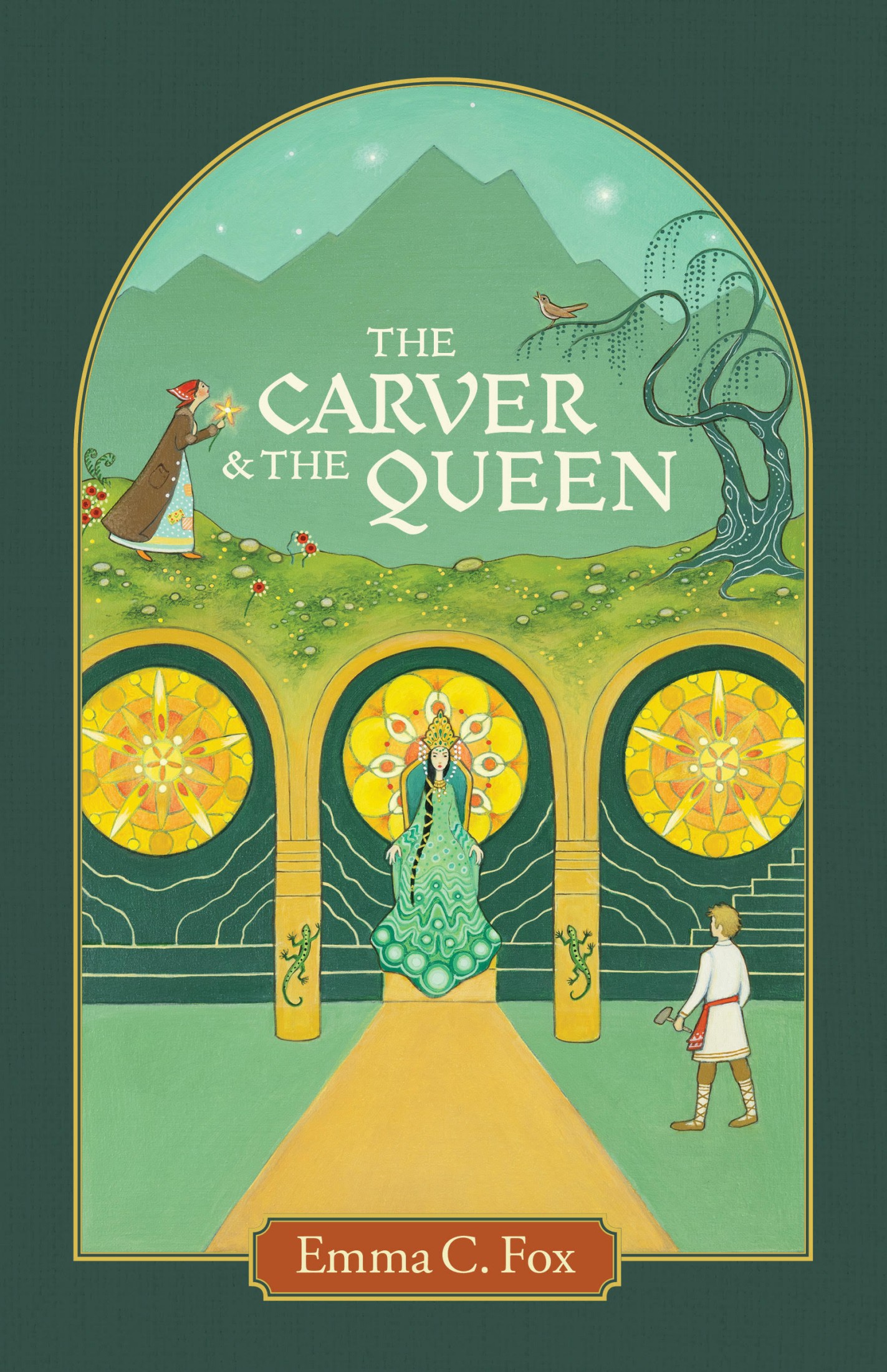‘After almost two years of being as inconspicuous a coward as possible, I had no idea that I would voluntarily risk my life for anyone.’ He shook his head in disbelief. ‘But I’m glad I could. I’m glad I still could.’
I recently inherited a gob of books. I now have four shelves in my bedroom dedicated to the storage and care of these books. Mind you, there are enough books that you can’t see all of them because I had to double stack them. It saddens me a bit. I like few things more than a comfortable chair, a lovely steaming cup of tea, a cool autumn afternoon, and time to stare listlessly at my neatly arranged books. However, this insane number of books on my shelves has also stimulated a renewed desire to be reading at every opportunity and now I have begun the long journey of reading every book on those shelves.
The main reason I am spending so much time on my own books is to know how many of them I should actually keep. The first random book I grabbed, Summer of My German Soldier, came from the small paperback portion of my shelves.
Bette Greene wrote this novel in 1973. Though I found it interesting (indeed, I hardly put it down due to pure curiosity), I wondered if I’m not the only one who thought this story certainly would never have been published if it had been written in our current day and age?
Wars produce classics.
I remember reading A Separate Peace sometime around my freshman year of high school. Did I understand that little paperback, that smelled like a library and felt like pure joy in my hands? No, not at all. Not even close, really. When I attempted to write my book review for school, my mother kindly pointed out that the title itself should have given me a lot to work with in regards to what the book was really about. Talk about a “duh” moment.
Now here I am seven or eight years later. I have a little more wisdom and literary discernment than I did then. And yet, I still find myself wondering what is really meant to be grasped in still another little classic set in the time of the World Wars. I think I can safely say that the 20th century was a time of philosophical reasoning and sentimental writing. The intensity of emotion drips off the pages of these books, yet philosophically there is much much more to these little novels than meets the eye.
For Patty Bergen, life is one rather mundane day after the other. She belongs to the only Jewish family in a small town in Arkansas. Her parents own the general store and she has a beautiful younger sister. Grandparents live in the city, merely a short train ride away. Ruth, their black maid, keeps Patty and her sister out of trouble and well-fed. On the surface it seems like Patty has a fairly good life situation.
But as Patty narrates this story for the reader, one thing becomes blazingly clear: Patty is starved for genuine love and affection.
Self-absorbed parents and a clueless younger sister leave Patty feeling alone, unwanted, and lost. Ruth is Patty’s closest friend and confidante, but no maid can fill the role of a mother and father. This naturally leads to Patty’s obsessive lying. At first, I struggled to understand why she continually lied. Eventually, as we see the progression and increasing outlandishness of Patty’s lies, it becomes obvious that she is doing what she can to garner the attention and affection of her parents. Specifically, Patty desires the love of her father.
Patty’s mother, while really just being obsessed with her own physical appearance and the opinions of those around her, commits the grave sin of turning a blind eye. As Patty desires to be loved by her father, her father desires only to be respected and loved from a distance. Portions of this relationship are difficult to read as Patty’s father even at times beats her for her lack of respect towards him and her supposed disobedience. Patty absolutely pushes the boundaries, again to gain attention. However, this does not excuse her attitude and behavior. Still, many of the issues this family has stem from a father who indulges his selfish anger and who gives his wife free reign to do as she pleases.
Interestingly enough, much of the extended family complications center around a severe lack of gratitude and humility. We tend to classify these as lesser virtues, mostly because of the work it takes to cultivate them. Yet, Patty’s parents (and extended family) would be greatly changed if they would embrace humility and thankfulness.
This book starts slowly. There is a great amount of build up and development before we are even introduced to the character who breaks the endless cycle of Patty’s discouraging family situation. Though many readers nowadays struggle to keep picking up a book that starts slow, the change of pace should actually be considered well-written. Good literature will vary in its packaging. I suggest taking the time to enjoy the slower pacing because along the way you can soak in the narrative, the vivid descriptions, and the build-up of emotion and conviction.
That being said, this is not your next happy, Saturday afternoon pleasure read. Summer of My German Soldier contains a painful story, one that leads you to the very end breathless and hoping for a better day for Patty. There are few sad books that have captured my attention so well. Though indifferent when I first finished the book, I have now had the time to soak in the story a bit. Though I originally was planning to give this book away, it has earned a place on my shelf because there is a sequel. That sounds odd; however, the nature of the story and the somewhat complex ending would frustrate most readers if not for the promise of a second novel. The second book may be just as bitter and sorrowful, but I have a glimmer of hope as I consider Patty’s story. I think there might be the bright light of a beautiful morning about to shine in her life.
One last note, the character who introduces the possibility of a new life and new opportunity for Patty discovers their own ability to be brave and courageous as they interact with Patty. It’s a small subplot, but speaks to the power of true love for others. Love that is informed by truth and self-sacrifice will always lead to courage in the face of fear and difficulty.
To read or not to read?
Though I am often one to point out only the “good and happy” stories, I here recommend diverting your reading journey briefly to include this bittersweet tale. It reminds me of Jacob Have I Loved and A Separate Peace. Wonderful writing sometimes means a book will imitate more the consistent sorrow and difficult trials of real life than the brief mountain-top experiences that we often enjoy reading of, but do not often experience. Can God use a story such as this? Indeed He can, and He has. Though Patty isn’t exactly a spiritual role model, she can remind us to look to our Heavenly Father who always loves and cares for those who are His children, regardless of our circumstances and in spite of our willful disobedience.
Until next time, go read a good book, even a sad one.
![]()




